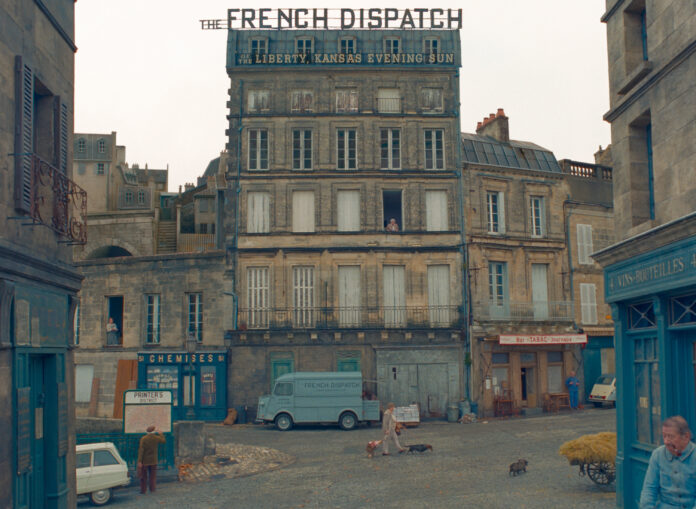Despite classic features that make it unmistakably Anderson, the film still transcends the director’s previous works
By JACOB ANDERSON — arts@theaggie.org
It would be difficult to underscore the degree to which Wes Anderson has informed the general population’s conception of an “Auteur Film.” His visual texture and mordant, fast-talking characters are fairly unique in modern cinema and loudly so. A five-second clip of one of his films would be totally sufficient for anyone to identify it (hell, maybe a frame would do), and it could be said that his style has been so broadly successful as a product of its identifiability or, more cynically, its branding.
Where the flavor of comparable but less commercially successful “Auteur Films” is frequently buried in their structure, characters or less blindingly yellow and symmetrical visual compositions — components that require the digestion enabled by fully watching a film — Anderson’s supreme talent has proven to be making his specialties as prominent as possible, such that even those who’ve never seen one of his films could probably describe his rhythmic francophile twee-ness with some kind of accuracy.
With this knowledge in tow, it won’t shock to hear that Anderson’s newest film has reconstituted his same trusty aesthetic. The differences that alight “The French Dispatch,” though, run below its immediate visual sameness.
The film is structured as a series of four farcical articles inspired by The New Yorker, variously strange and funny, and each with narration provided by the writer of the article in question. In violation of what one would expect of similar anthology-style films, the stories are remarkably consistent, sauntering between charming, parodic and heartfelt with uncommon grace that never falters throughout the film’s two hours. The tone remains serene and refined even through moments of cartoonish action and heartfelt denouements that validate without contaminating the film’s casual attitude. Even more remarkable is how the narrator of each story comes alive completely, with personalities arresting enough to come through any journalistic pretense that may exist — sometimes in just a handful of lines.
“The French Dispatch” is a film that lives through its subtleties: Its multilayered narrative works at full capacity, harboring clusters in all possible places within its folds that make the film feel full from start to finish. It’s a film as polished as the writing it worships, precisely calculated to stimulate and nourish.
It should be noted that the film’s ambition is small. As adroit as it is, much of the effort present is in the pursuit of capturing something that already exists: the upper-class tannin-obsessed nonfiction of a magazine whose hay day has long passed. “The French Dispatch” is elaborate nostalgia, and in anchoring itself in such a way, it fetters some of its potential. Even with this restriction, however, the film is doubtless Wes Anderson at his best.
Written by: Jacob Anderson — arts@theaggie.org




